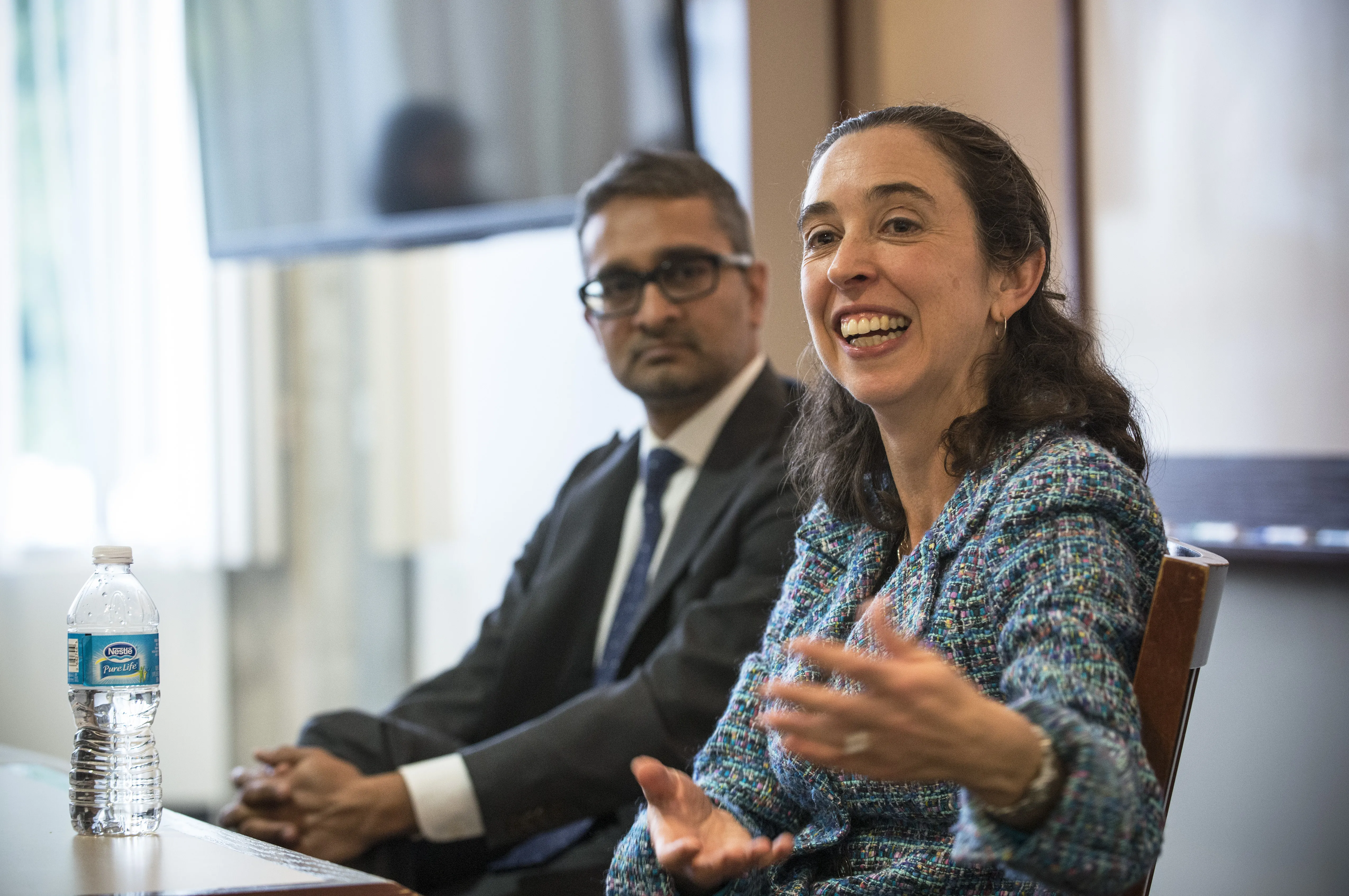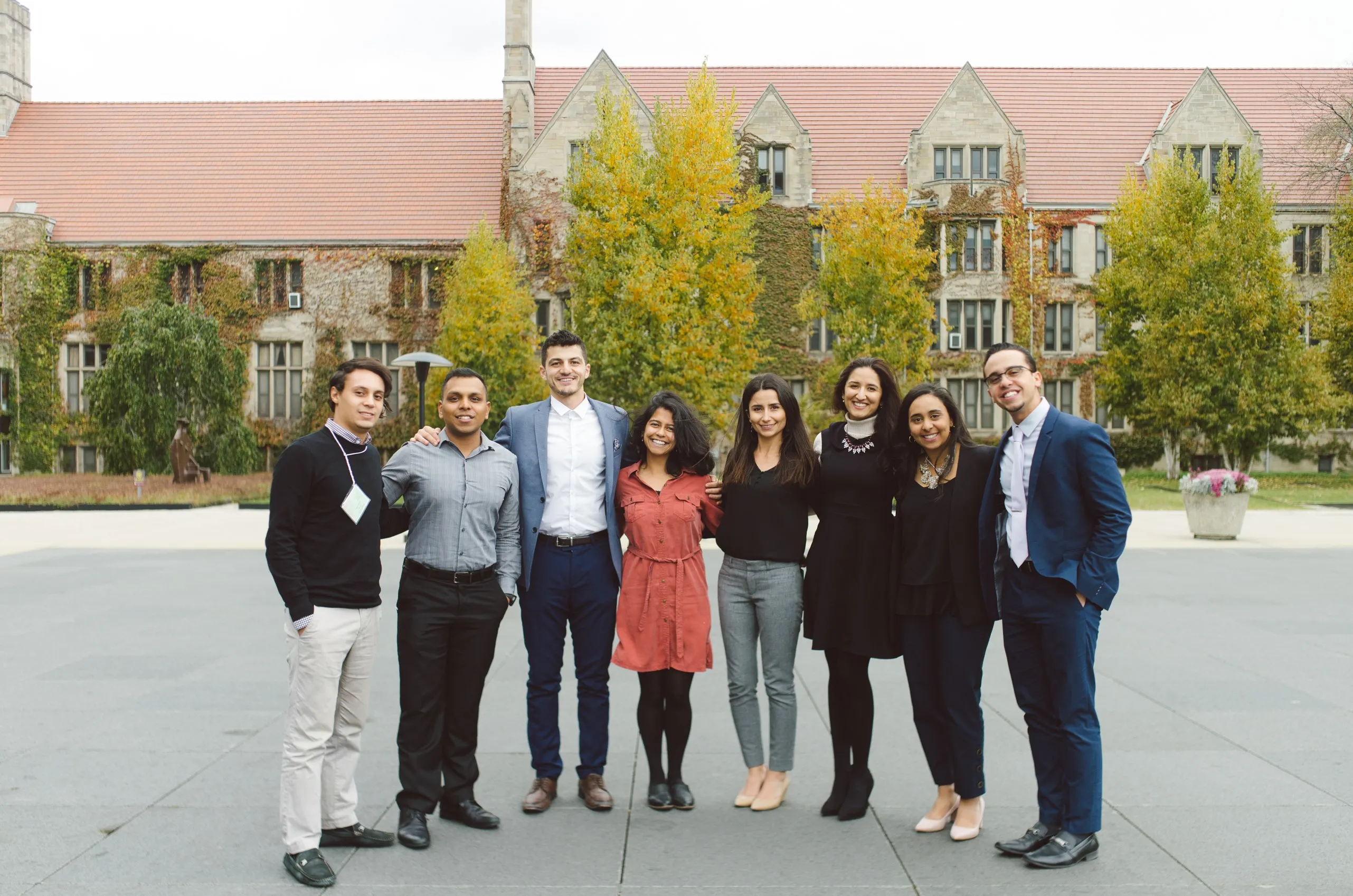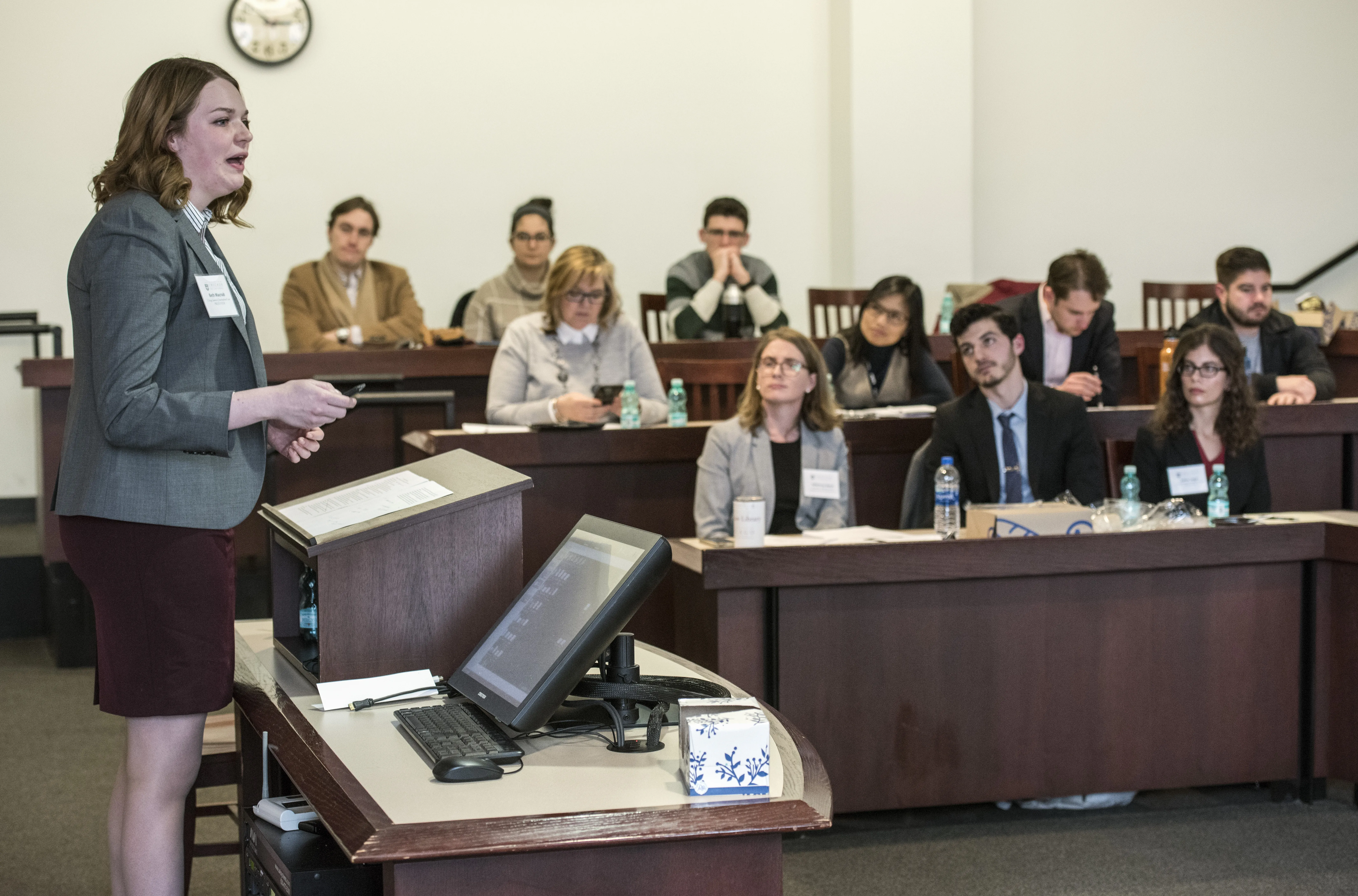Ninth Circuit Judge Tells Students What it Was Like to Hear the Travel Ban Case

Judge Michelle Friedland of the United States Court of Appeals for the Ninth Circuit is no stranger to working on a tight deadline. As a law clerk to Supreme Court Justice Sandra Day O’Connor, Friedland was often tasked with turning around assignments on short deadlines.
“I think I’m an over-preparer in general, and it’s my approach to the bench,” Friedland told Law School students earlier this month in the first Edward H. Levi Distinguished Jurist talk of the quarter.
Still, nothing in her past could have prepared her for the blitz of briefs, research, oral arguments, and opinion writing that surrounded the legal challenge to President Trump’s executive order blocking travel from seven predominantly Muslim countries last February.
“I’ve never worked so hard in my life,” Friedland said. “I barely ate and barely slept.”
During the discussion with students, which was moderated by Professor Anup Malani, the Lee and Brena Freeman Professor of Law, Friedland described her experience serving as one of the three Ninth Circuit judges assigned to the high-profile case. Besides the unusual amount of national attention, the case also “felt very different in terms of time pressure.”
Instead of the usual twelve weeks, Friedland had only a few days to read the briefs and conduct independent research before oral arguments.
“I got the briefs during Super Bowl weekend and then basically read everything I could for the next forty-eight hours,” she said. “I hosted a Super Bowl party at my house that I did not attend.”
Because of the need to decide the government’s emergency motion quickly—the opinion was issued two days after oral argument—Friedland noted that the “normal opinion-writing procedures went out the window. We couldn’t agonize over every sentence like we usually do.”
In fact, Friedland was so engrossed in unearthing everything she could about the relevant legal theories that she did not even know the oral argument was broadcast on cable news until the next day at lunch when a law clerk told her.
Friedland also shared that, until President Barack Obama nominated her for the Ninth Circuit, she had never imagined serving as a federal judge, much less deciding a case of such national prominence. She described the stress of the nomination process and attending her Senate confirmation hearing. Just before the hearing, Friedland received an email from the then-retired Justice O’Connor’s assistant informing her that O’Connor wanted to attend the hearing.
“We walked in together, and senators started coming up to her,” Friedland said. “Some just wanted to introduce themselves. Because of her age, she needed to be seated to receive them. But senators kept coming up to her, literally kneeling before her so they could talk with her. To every single one she said, ‘I am here because I think Michelle would make a great judge.’”
As she returned to her hotel room after the hearing, she thought, in some ways for the first time, “I might get this job!”
Sam Fuller, ’19, who attended the event, said he particularly enjoyed Friedland’s confirmation story.
“It was fascinating to view the Senate confirmation hearing from her perspective as a judicial nominee,” he said. “It showed how respected Justice O’Connor is on both sides of the aisle.”
Nearly three years after receiving her commission, Friedland heard oral arguments in the challenge to Trump’s first travel ban, a case that reached far beyond the legal community. “I received so many letters following that case from grandmothers in Mississippi to students in Minnesota,” she said.
Despite the accelerated timeline and unusual amount of attention from ordinary Americans, Friedland said that the oral arguments were actually quite typical.
"For so many people, it was their first and only experience of oral argument,” she said. “It turned into a nice civics lesson in that respect.”


